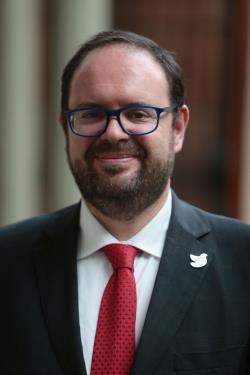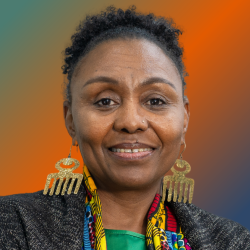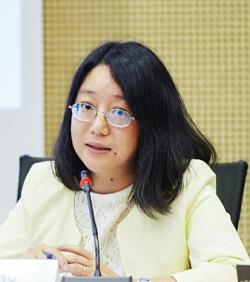Harnessing digital public goods and fostering digital cooperation: a multi-disciplinary contribution to WSIS+20 review
UNESCO Information for All Programme
Session 404
The UNESCO Information for All Programme (IFAP) IFAP Strategic Plan 2023-2029 aligns with the United Nations' Global Digital Compact (GDC) endorsed by world’s leaders in 2024. The GDC aims to create an open, free, and secure digital future for all and emphasizes the importance of digital public goods (open-source software, open data, open AI models, open standards, and open content) and digital public infrastructure as key drivers of inclusive digital transformation, innovation and sustainable development.
IFAP community strives to promote inclusivity, ethical technology, and equitable digital transformation to ensure no one is left behind in the digital age. IFAP community contributes to the implementation of GDC by leveraging its expertise, priorities, projects and networks to support Member States in six priorities: Information for Development, Information Accessibility, Information Literacy, Information Ethics, Information Preservation, and Multilingualism.
The workshop builds on the outcomes of the event Artificial Intelligence, Accessibility, and Human-Centered Digital Futures, held on 11 February 2025, jointly convened by UNESCO Information for All Programme (IFAP) Working Group on Information Accessibility (WGIA) and Working Group on Information Ethics (WGIE).
Having involved its Working Groups on Information Ethics, Information Literacy and Information Accessibility, IFAP is organizing this workshop to trigger multi-stakeholder and multi-disciplinary discussion will contribute to the WSIS+20 review process by providing a guidance framework addressing opportunities and challenges posed by the current digital landscape.
Aiming to foster digital cooperation and partnership, IFAP takes the occasion to promote IGF Dynamic Coalition (DC) on Measuring Digital Inclusion and engage with key members and actors of the Dynamic Coalition: International Federation of Library Associations and Institutions (IFLA), the Regional Centre for Studies on the Development of the Information Society (CETIC), the United Nations University Group on Electronic Governance (UNU-EGOV), and Tech and Global Affairs Innovation Hub.







-
 C1. The role of governments and all stakeholders in the promotion of ICTs for development
C1. The role of governments and all stakeholders in the promotion of ICTs for development
-
 C2. Information and communication infrastructure
C2. Information and communication infrastructure
-
 C3. Access to information and knowledge
C3. Access to information and knowledge
-
 C4. Capacity building
C4. Capacity building
-
 C10. Ethical dimensions of the Information Society
C10. Ethical dimensions of the Information Society
-
 C11. International and regional cooperation
C11. International and regional cooperation
-
 Goal 4: Ensure inclusive and equitable quality education and promote lifelong learning opportunities for all
Goal 4: Ensure inclusive and equitable quality education and promote lifelong learning opportunities for all
-
 Goal 5: Achieve gender equality and empower all women and girls
Goal 5: Achieve gender equality and empower all women and girls
-
 Goal 9: Build resilient infrastructure, promote sustainable industrialization and foster innovation
Goal 9: Build resilient infrastructure, promote sustainable industrialization and foster innovation
-
 Goal 10: Reduce inequality within and among countries
Goal 10: Reduce inequality within and among countries
-
 Goal 16: Promote just, peaceful and inclusive societies
Goal 16: Promote just, peaceful and inclusive societies
-
 Goal 17: Revitalize the global partnership for sustainable development
Goal 17: Revitalize the global partnership for sustainable development